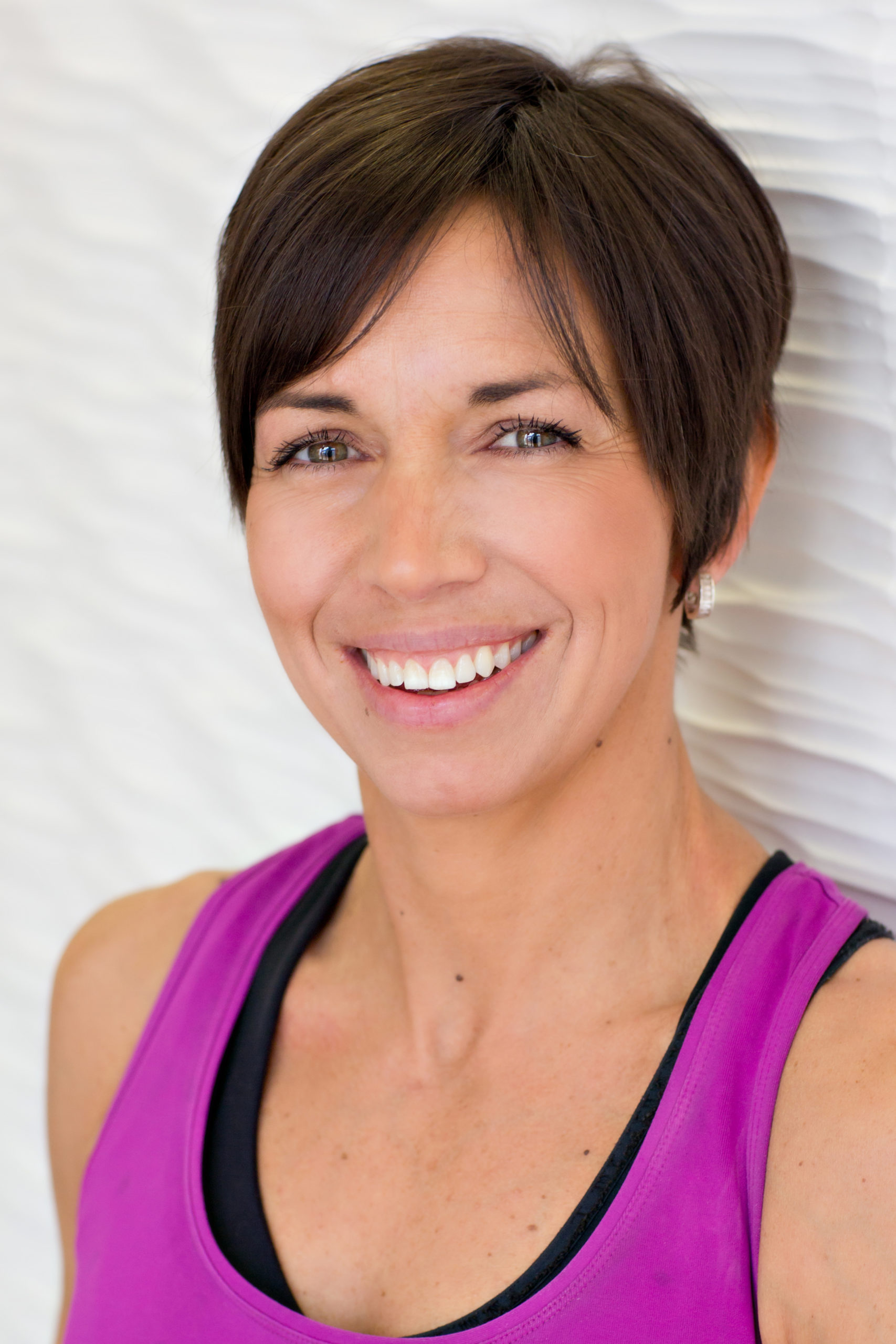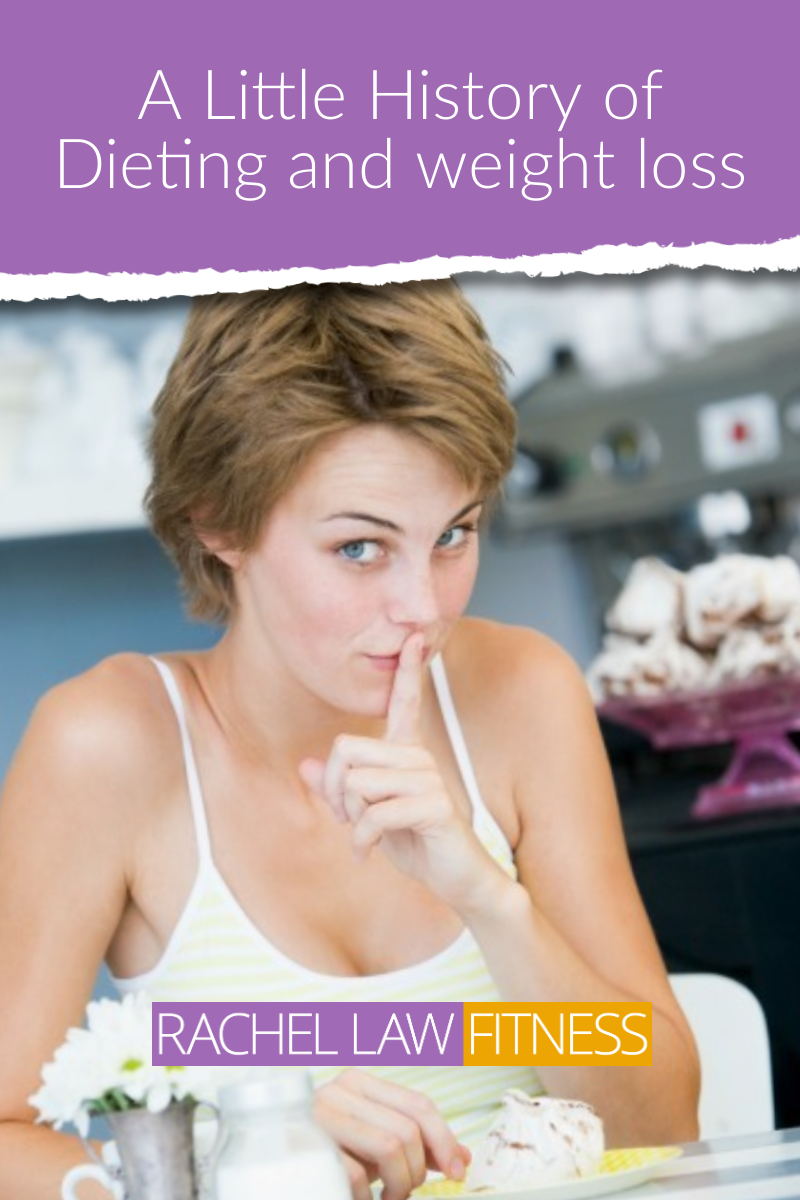Fat loss is big business right now. Most of my clients have one goal in common, amongst others
Most of them want to lose weight!
I’m always sceptical of new clients whose ONLY goal is weight loss. There is only so much we can do through exercise to lose the extra fat. We need to look at what we are eating too. However, it has to be said that in most cases people don’t persevere on a new eating programme for long enough to lose and keep the fat off.
So I thought I would write a little bit about the history of dieting. Maybe I will raise a smile, or maybe I will convince you to keep going and find a fat loss method that works for you.
Here is a brief history of ways that people have restricted food in attempts to lose weight.
The History of Dieting
It is obvious that people have been dieting since the invention of the mirror.
Vanity is nothing new.. it has become magnified over time.
Today we are told that lean people live longer and are more productive in their daily lives than their fatter counterparts. There is the BMI measure to tell us whether we are overweight or obese and we are shamed for it if we are. So for various reasons millions have embarked upon some sort of fat loss program.
Fasting – The First Diet
Years ago people who wanted to lose fat did so based on very limited information. Before the discovery of the calorie, people lost weight by ‘fasting’. When a person abstains from food the body has to break down body tissue for survival. Much of this fuel will come from stored energy in the form of fat reserves. Unfortunately, a severe fast is dangerous as the body will call upon other tissues to be used as fuel.
With fasting, the body chooses a mixture of stored body fat and lean body mass as fuel. Just as the body taps into body fat and breaks it down to use as energy, it can do the same with muscle and organs. When deprived of food the body can easily break down the heart, the liver and other organs to make fuel. The body will also rip apart the muscles to make fuel during a starvation fast.
This can lead to exhaustion and eventually death. So we can conclude that a total fast isn’t the smartest approach to fat loss..
I sincerely hope that you haven’t been dieting like that this year – if so please stop now and try something else….
Modified Fasting
Once people figured out that prolonged fasting worked but the negative was death, they began to alter the fasting approach to weight loss and the modified fast was born.
The modified fast involved abstaining from food completely for as long as you could and when you finally broke down, your willpower was crushed and your appetite screaming in high gear you would eat. Some would eat a small amount and drink a ton of water to suppress the appetite. But others would go crazy, break down and eat as if it was their last meal on earth, probably negating any fat loss during the period of fasting.
Sound familiar..?
Calorie Counting
With the breakthroughs in science man discovered the CALORIE, and the never-ending task of tabulating numbers, keeping records and avoiding large portions began. However the dieter still did not know how many calories he required in a day, so in the hope of losing fat and with little knowledge he resorted to a method which sadly is still prevalent today.
This method is:
‘If you’re unsure how may calories you should be eating to lose weight just take the conservative route and eat less’
For many, the magical number of 1000 calories seemed to be low enough to work and many who followed a diet that yielded 1000 calories a day lost weight.
However, they also discovered the dreaded dieting plateau.
Research began to prove that with severe calorie restriction, body protein, specifically in the form of muscle mass, was also being shed along with body fat.
To combat this, dieters and weight loss coaches added a simple twist to the 1000 calorie diet. They ate all the calories from protein foods.
The idea was simple. Count calories and limit the total to 1000 but ONLY EAT PROTEIN FOODS. Hence preventing the body using its own muscle as fuel.
This worked better than fasting but lacked variety and was just too difficult to maintain even for those with the greatest willpower.
Do diets cause Fat Loss?
To some degree, I have been involved and infatuated with body fat control for 30 odd years.
Diets come and go. The Rice Diet, The Fruit Diet, The Low Carb Diet, The High Carb Diet, The High Fat Diet, The Low Fat Diet, The Fibre Diet and the list goes on..
What each and every diet has in common is controlled caloric restriction (despite many claiming they are not). Counting Points, Restricting Syns – it’s all the same idea.
One thing we know for sure is that when calories are reduced the body calls upon other sources for fuel and one of them is stored body fat. So unlike some who say ‘diets do not work’ I would disagree and say
‘DIETS DO WORK’
The problem is they are either difficult to maintain for long periods of time, do not supply enough calories, or simply do not educate the person in lifelong, sustainable eating habits. Diets are boring and do not allow the dieter to eat food which they enjoy.
So the discouraged dieter throws in the towel and quits.
Nowadays we know so much more about healthy eating, and the best way for anyone to lose weight is to adopt a healthy balanced eating plan which is appropriate to the size, shape and activity level that they are trying to achieve. If you are a 5-foot woman with a sedentary job who goes to the gym a couple of times a week, you need a different eating plan than a six-foot guy who works on a building site, and a different eating plan from another 5-foot woman who is a professional athlete or training for a marathon. It makes perfect sense. Eat for the person you want to become.
If you are training with me, and want to discuss the ideal nutrition to support your other fitness and weight goals, then please mention it in our sessions. The ideal eating plan for you, is the one that works best for your ifestyle, and in most cases you can’t just get this out of a book.

Rachel Law is a personal fitness trainer based in New Malden, Surrey. Qualifications: ActivIQ Level 3 Personal Training; Burrell Education Pregnancy Exercise Prescription; Burrell Education Advanced Pregnancy Wellness Practitioner; Burrell Education Advanced Post Natal Exercise Prescription; Burrell Education 3rd Age Women Optimal Health and Nutrition; Burrell Education Peri Natal Athlete; Burrell Education Pelvic Flow and Freedom; Olympic Weight Lifting; Premier Global Kettlebells; FIE Level Assessment and Mentoring



